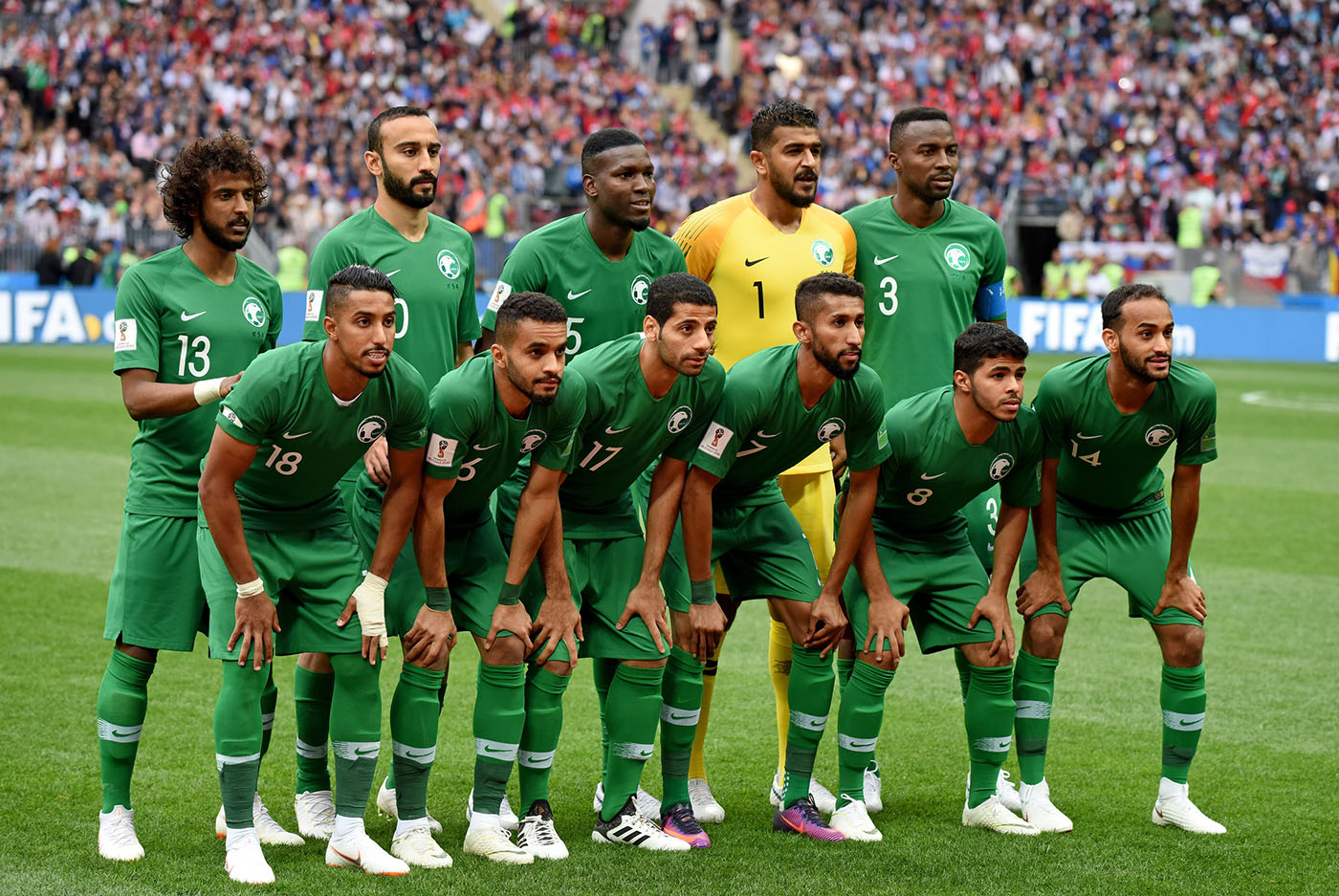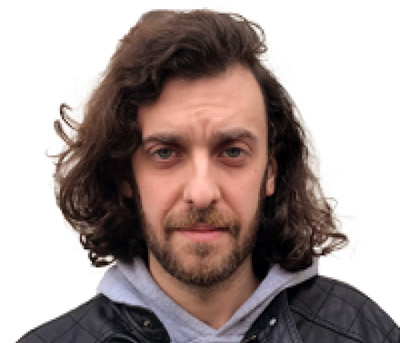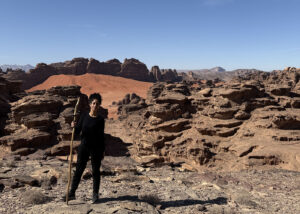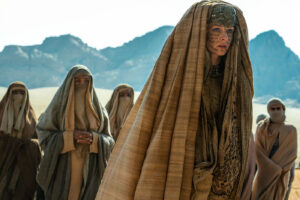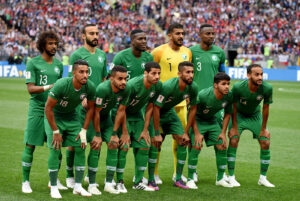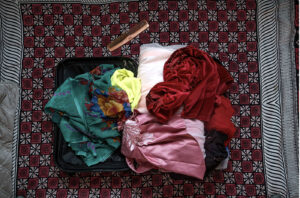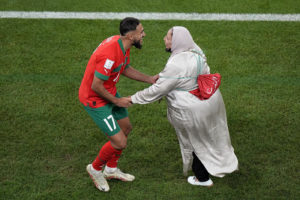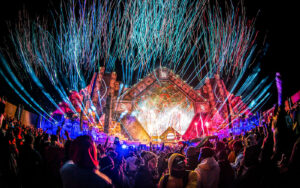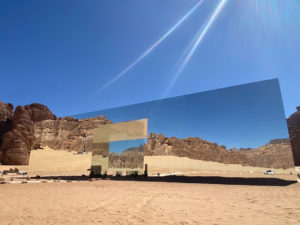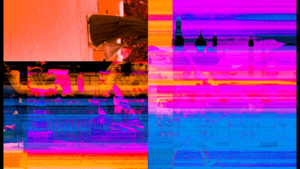The World Cup (as with sporting events more generally) has long been a tool for strongmen to consolidate their power through portraying a positive image of their nation and inviting world leaders to sit beside them.
A People’s History of Football by Mickaël Correia, translated by Fionn Petch
Pluto Press 2023
ISBN 9780745346861
Justin Salhani
On October 3, 2023, the Kingdom of Saudi Arabia submitted a bid to host the 2034 Men’s Football World Cup. It was deadline day and Saudi was the only nation to bid. FIFA had previously said that it would decide who will host the 2034 World Cup in the last quarter of 2024. But as the only bidder, Crown Prince Mohammed bin Salman, Saudi’s de facto ruler, can already start celebrating.
In recent years, Saudi has brought some of the best players in the world to its domestic league, including Cristiano Ronaldo, Karim Benzema, N’Golo Kante, Sadio Mane, Riyad Mahrez, and a host of others. Lionel Messi, who recently won his jaw-dropping eighth Ballon d’Or (Cristiano, with five, is second all-time) turned down the chance to play there but did sign on to be a tourism ambassador for Saudi. The 2034 World Cup will be hosted in a country where you can now attend a rave unless you voice your discontent with the leadership, where you can now drive as a woman unless you were one of the activists who led the push to secure this right, and where, as has long been the case, human rights organizations are banned.
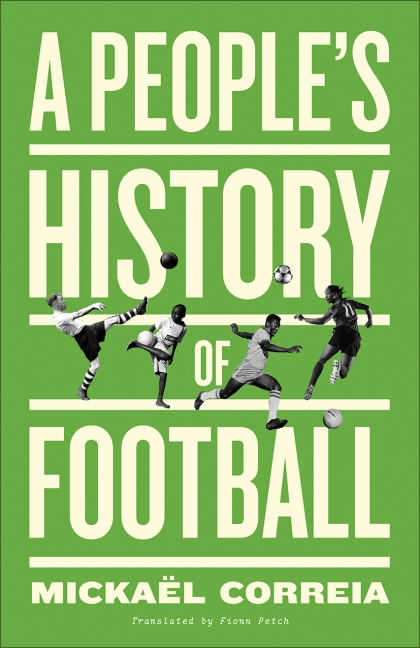
This is not the first time an autocracy will host the World Cup. Italy hosted the event under Benito Mussolini’s fascist regime in 1934. Argentina hosted it in 1978 under Jorge Rafael Videla’s military dictatorship. In recent years, Vladimir Putin’s Russia played host in 2018, and Qatar hosted the most recent rendition in 2022. And while the United States, set to play host in 2026 (alongside Mexico and Canada), is not an autocracy, its rhetoric on the sanctity of human rights apparently doesn’t apply to Palestinians — if one takes into account its recent votes against a ceasefire at the UN Security Council. The World Cup (as with sporting events more generally) has long been a tool for strongmen to consolidate their power through portraying a positive image of their nation and inviting world leaders to sit beside them. It would be naive to think that the World Cup was ever an apolitical spectacle. And there is admittedly something to be said for taking football’s greatest event to new host countries and regions.
Still, we have to ask: Shouldn’t human rights receive even the slightest consideration when an international body picks a host country? Or have we all just agreed that this is what football is now? And if one chooses to rebel against the status quo, how might one go about doing so?
Early industrialists in 19th century Europe saw an opportunity in football. As Correia writes, “the bosses anticipated that football would improve the physical constitution of their workers, increasing both the productivity of their labour and their identification with the company.”
Today, top-level male footballers are also multimillionaires. They are no longer working class, even if they are technically laborers and their collective solidarity is important, particularly for those further down the pecking order, who make less money and have less job stability. But the early days of football leagues exemplified the idea that sport is labor and labor is sport.
At the same time, some early footballers were able to use their agency to improve their material conditions. In one humorous anecdote, Correia quotes a worker at the Renault automobile factory in France. “I’m constantly reminding my football managers I want to change jobs,” the worker-footballer said, later adding, “finally I was offered a job at the central office, as a graphic designer. I have no idea what they do there.”
Correia shows how, at times, footballers and fans have banded together to fight footballing establishments for their rights. He also frames certain moments in history around the interventions of football fans, as with specific instances of the historic struggle against fascism in France, Italy, and Germany. “Mussolini had made sport a political weapon like no one else before him,” Correia writes in a section titled “Attack: Assault on Dictatorships.” Later in the same passage, he adds:
Mussolini’s sports policy was intended to prepare future soldiers to defend the fatherland and to bring about the emergence of a new man, the spearhead of a healthy and renewed nation. The physical dimension of the totalitarian ideology was embodied by Il Duce himself, who didn’t hesitate to put himself forward as ‘Italy’s first sportsman’, the robust physique of the autocrat reflecting the virility and warrior masculinity so beloved of fascism.
But the propaganda could work both ways. For every instance of football being used to spread fascist messaging, there are counter examples of rebellion. At a stadium outside Paris in 1934, “communist militants spoke at half-time to urge people to fight fascism and imminent war,” presumably referring to the then-brewing Spanish Civil War (1936-1939), which would draw in leftists from France and the world. Also in the 1930s, once that war had erupted, the Catalan club FC Barcelona used “the team’s movements to transport pistols hidden inside footballs” and “encouraged its players to join the anti-fascist front.”
While most of the book focuses on Europe, there are extensive dives into parts of Africa and Latin America, along with chapters on the struggle of footballers in Occupied Palestine, anti-government protests in Algeria, Egypt, and Brazil, and a chapter overflowing with panache and joy on street football in Brazil, Senegal, and France. In arguably the most important part of the work, Correia delves into the discrimination faced by women footballers, reminding us that for around half a century women’s football was outright banned in countries such as France and the United Kingdom. One shocking passage stands out in particular, considering that it addresses an event that happened in recent memory: the French Football Federation (FFF) campaign to “feminize” women footballers:
Les Bleues [nickname for the French national team] were forced to pose nude as part of a campaign to promote women’s football in 2009 […] ‘skirt days’ were organised at the big clubs to teach players how to wear a suit or make-up, and the FFF’s school programme for girls was given the name ‘Football for Princesses’.
Each chapter is thoroughly researched and centers the struggle against overarching power structures. At times, there’s a sense that Correia is indulging the Disney-ish romance of football as a means of conquering all evils — scoring goals and winning matches to beat racism and change society — but he quickly veers back into addressing the nitty gritty of politics. In doing so, Correia shows that football can be a force for good, but that collective and political action is still required for genuine societal change.
If this book has one shortcoming, it is the author’s choice of descriptors for the North African societies he writes about. When describing ultras in Egypt and Algeria who oppose their governments, Correia feels the need to start one sentence thus: “Across North Africa, in the conservative Muslim and Arab societies living under authoritarian regimes.” While not necessarily incorrect, this is an Orientalizing and minimizing descriptor that doesn’t adequately frame the conflict — at least in Egypt, where the regime often portrays itself as a stalwart of secularism against rabid Islamists.
But that aside, Correia’s retelling of history spotlights the rebels of both yesterday and today. Yesterday, it was the Dutch wizard Johan Cruyff, who despite being coveted by Real Madrid, then a symbol of Francisco Franco’s dictatorship (1939–1975) following his side’s victory in the Spanish Civil War, joined their rivals FC Barcelona in 1973. “The talented player,” Correia writes, “breathed an unprecedented wind of freedom into Spanish football by taunting the dictatorship: he gave his son the banned Catalan first name Jordi, and dedicated a photograph to members of the Assembly Catalonia imprisoned in Francoist jails.”
Even more brave and brazen were those footballers who fought fascism and Nazism. Consider Rino della Negra, a player with legendary Parisian club Red Star who joined the resistance during the Nazi occupation of France:
[T]he young footballer participated in the execution of the Nazi general Von Apt in June 1943, and in the attack on the Parisian headquarters of the Italian fascist party. On 12 November 1943, he was injured and then arrested following an action against German money couriers. He was executed at Mont Valérien on 21 February 1944 at the age of 20, consigning his last words to his younger brother: ‘Send my greetings and farewells to everyone at Red Star’.
Such historical anecdotes leave us wondering: Who are today’s heroes? Professional players’ tendency to go along with corporate or commercial attempts to sanitize and depoliticize — a political act in and of itself — contemporary top-level football means that there are precious few examples of famous male footballers who speak truth to power. With the Saudi World Cup approaching, one might ask if Kylian Mbappé would name his son after Raif Badawi, the blogger who spent 10 years in jail for writing a blog post. Would Lionel Messi dedicate a photograph to Loujain al-Hathloul — the Saudi women’s rights activist who defied the then-current driving ban and whom the Emirati authorities, at the behest of their Saudi counterparts, detained in 2018 and deported to her country? In Saudi, she was arrested, spent more than two years in detention, endured torture, and even today remains under a travel ban. Certainly, many top level footballers do good, but it is rare to see an elite male footballer take a stand that hurts his bottom line.
While the professionalization and commercialization of the game at the top level may have left little space for outright rebellion, agitators still abound elsewhere. Cruyff, the Dutch player who rebuffed Real Madrid owing to their alignment with Franco’s dictatorship, may no longer be with us, but he has certain heirs. Today’s agitators-cum-rebels, Correia tells us, are the fans uniting to fight oppressive police in Egypt and Algeria or neoliberal forces in Brazil. They are the streetballers in France who defy the racist subjugation of the FFF to organize community games. And they are the radical amateur women footballers such as Veronica Noseda of the Parisian club Les Dégommeuse, a militant women’s football club that fights gender-based and other forms of discrimination. He might have also mentioned the Hijabeuses, a team fighting to remind us that the same FFF that tried to “feminize” Les Bleues is also the only federation to ban the hjiab.
We can only speculate as to whether, when the first ball is kicked in 2034 at a stadium in Riyadh, the spirit of the game will be even further corroded or if there will emerge a few courageous figures who stand up to injustices. As Correia informs us, the people’s fight for the soul of the game began as soon as football itself began. And as long as there is football to be played, there will be room for rebellion.



